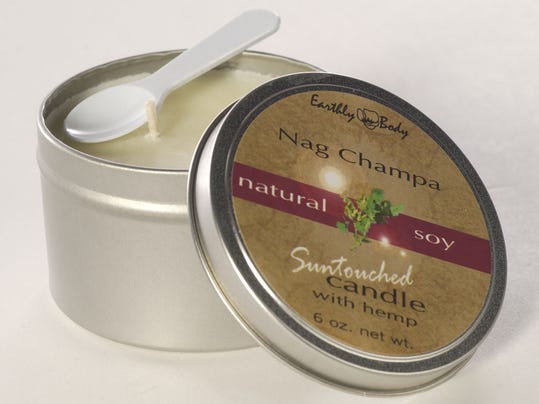Source: cincinnati.com
U.S. Rep. Thomas Massie from Northern Kentucky is trying once again to legalize industrial hemp growth. He has powerful backup this time, and says such production could boost jobs in Kentucky.

Candles are just one of the products that are made with hemp. (Photo: Enquirer file)
Northern Kentucky's congressman is taking another swipe at legalizing the growth of industrial hemp, and this time he brought some powerful friends.
In an exclusive interview with The Enquirer Thursday, U.S. Rep. Thomas Massie, R-Garrison, said his bill, which would remove hemp from the federal list of banned plants, has the support of U.S. Senate majority leader Mitch McConnell, R-Louisville, as well as nearly 50 co-sponsors and Sen. Rand Paul, who introduced his own version of the bill in the Senate.
"Everything comes down to a sound bite, and this time it is 'This is rope, not dope,'" Massie said. "We are there when it comes to public perception about this, but unfortunately congressional awareness has been lagging. That is all changed now and we're ready to go forward."
Massie said that between past and present co-sponsors and those who approved previous amendments expanding the use of hemp, congressional supporters number more than 200.
In 2013, he tried this before but his bill died in committee. Opponents have long been concerned that hemp could be used as a drug like its more potent cousin marijuana. In fact, hemp has been prohibited since the 1930s, with an exception made for World War II.
But Massie and other hemp advocates argue the plant can't be used as a mind-altering drug and that it is widely imported for the use in clothing, rope and industrial uses (Ford Motor Co. is one of several car manufacturers to make auto-body parts out of hemp). Massie and others argue that it could turn into a business worth "hundreds of millions of dollars."
Not only that, but Kentucky would have a head start, given that pilot programs were allowed in the state thanks to an amendment introduced by Massie in last year's farm bill. Massie and others also argue that it could help Kentucky farmers replace tobacco as a cash crop.
"I've heard from countless Kentuckians about the success of our initial 2014 industrial hemp pilot programs and university studies in the Commonwealth," McConnell said in a statement after agreeing to co-sponsor the Senate version. "I am especially proud that Rep. Massie and I were able to work together in making those projects possible on the federal level via the 2014 Farm Bill. I support this legislation and look forward to seeing industrial hemp prosper in the Commonwealth."
Massie said that most voters in his district understand the difference between hemp and marijuana and is not afraid of any political repercussions, adding that having such widespread and leading support in Congress could overcome any problems created by his recent stance against the election of House Speaker John Boehner, R-West Chester.
"I've got a lot of older Republican farmers who remember when their grandparents grew hemp and they don't understand what the fuss is all about," Massie said. "Couple that with younger voters who also are in favor of it and we have the support."
He said there were no signs of anyone trying to harvest hemp for drug use during those pilot programs at the University of Kentucky and Western Kentucky University.
Massie added that he feels legalized industrial hemp production would "create more jobs than the Keystone pipeline that everyone is debating right now."
"Ten years from now, I suspect everyone will be wondering what the problem was with this in the first place," Massie said.
Other support includes Democrats who helped Massie get the farm bill amendment passed.
"Voters across the country have made it clear that they believe industrial hemp should be regulated as an agricultural commodity, not a drug," said U.S. Rep Earl Blumenauer, D-Ore. "This legislation ... is the critical next step, while at the same time creating meaningful jobs and restoring an important industry in the U.S."
As for hemp's more potent cousin, Massie said he has not taken a stand on legalized marijuana for recreational use, but said that polling in his district indicated widespread support of medical marijuana with a doctor's prescription. And he said that the legalization of marijuana in general should be left up to individual states and not the federal government.
"I'm not taking a position on that because I don't want to conflate the two issues of hemp and legalizing marijuana; they are two totally different things," Massie said.
No comments:
Post a Comment